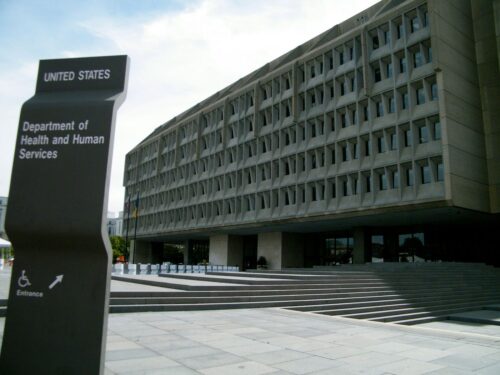Article • Expose the Heist: Power and Policy in Unprecedented Times
Taking a Chainsaw to Health and Human Services

Article • Expose the Heist: Power and Policy in Unprecedented Times
Fact-based, data-driven research and analysis to advance democratic debate on vital issues shaping people’s lives.
Center for Economic and Policy Research
1611 Connecticut Ave. NW
Suite 400
Washington, DC 20009
Tel: 202-293-5380
Fax: 202-588-1356
https://cepr.net
DOGE strikes again. Even when its fingerprints aren’t on the firings, its mantra that slashing the federal workforce is the key to improved efficiency is driving massive Cabinet department restructurings.
The bombshell announcement that Robert F. Kennedy Jr. would be firing 10,000 workers at the Department of Health and Human Services, the department he heads, is a threat to public health and safety. Advertised as a restructuring that will increase efficiency, it appears to be – at best – an effort to preserve essential functions while cutting administration and customer service, making it difficult for people to access benefits they are entitled to.
For example, this round of dismissals will affect the Affordable Care Act’s health insurance program that currently provides 160 million Americans with access to health care. Participants rely on telephone conversations with knowledgeable HHS staff to help them figure out how to sign up for insurance plans. Are the ‘administrative cuts only’ designed to cause the same confusion and dismal experience with the ACA that are already visible at the Social Security Administration? Something to watch for.
Kennedy’s announcement follows the DOGE-directed departure of about 10,000 workers at HHS through buyouts or dismissal. Another 5,200 probationary workers were let go by DOGE – but then put back on the payroll on administrative leave due to a judge’s order. Already, funding cuts and the departures of those workers have negatively affected efforts to reduce maternal deaths and help people suffering from Long Covid. It has also shut down biomedical research and hampered effective oversight of fraud and abuse.
The department’s ability to fight outbreaks of infectious diseases like the measles outbreak in Texas – already compromised by the recent freezing of funds promised for that effort – is likely to be further eroded by the cuts to HHS’s workforce. Closing half the local HHS offices around the country does not bode well for public health. Indeed, some former federal workers along with lawmakers like Senator Patty Murray (D-WA), worry that the real aim is to continue to turn over the work of public agencies to private corporations – a poor strategy when it comes to public health.
HHS has come under criticism in the past, and it is fair to say that a better HHS could be created through thoughtful reform efforts. For example, the Food and Drug Administration (FDA) – a part of HHS – has been criticized for allowing companies that develop new drugs and medical devices to design and pay for the clinical trials necessary to prove they are safe and effective, and to control the data from the trials. This is a clear conflict of interest that some experts believe has led to approval of drugs that may be safe but may not be effective. Kennedy has been skeptical of the clinical trials status quo; will he make trial data public? For the longer term, will he ask Congress to take industry financing out of the picture and increase public funding to remove these corporate-friendly conflicts? Something else to watch for.
But taking a chainsaw to an agency’s workforce – in HHS, reducing it from 82,000 permanent employees to 62,000 and firing 5,200 employees in the pipeline for permanent employment – does not meet the definition of thoughtful reform. Its true purpose appears to be to contribute to the Musk/Trump effort to cut services and programs that Americans rely on in order to pay for massive tax breaks for millionaires and billionaires.
At HHS, the dismissals of workers and freezing of grants will perhaps ‘save’ $1.8 billion each year. The Trump tax cuts are estimated to cost somewhere around $400 billion annually.